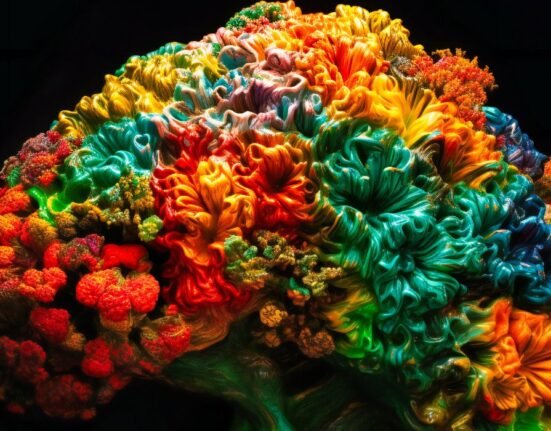The entire psychology of an individual is based upon the triangular model that is the ABC (Affective, Behavioural and Cognitive) model. out of all, ‘C’ that is cognition is the most intricate and higher order function that requires very close attention to understand it. Attention isn’t the most important crucial and of course the primary entity needed to initiate almost all cognition be it perception, memory, reasoning learning, thinking etc.
Defining Attention
Attention is a state of consciousness in which a person can respond to a stimulus or stimuli. Stimulus can be a required task an object or an event that requires a response. It is a combination of how long a person can focus and how many things. An individual’s focus and behaviour towards the stimulus in the environment are highly influenced by his attentional process. Mandatorily, it is the brain that decides when why and what type of attention is needed to be given to a particular kind of stimulus in the environment. For example, the words that are written in Bold grasp our attention more swiftly than the words not being written in bold.
Read More: The Psychology Behind Focus
It is the human brain that decodes the crucial information about a stimulus and then decides whether to attend to the stimulus or not. It is the one that figures out what type of and for how long attention should be given to generate a response. Attention is the ability to process specific information in the environment while turning out other details. It is limited in terms of both capacity and duration. So, it is important to have ways to effectively manage the attentional resources we have available to make sense of the world.
It is the ability to focus on relevant information while ignoring irrelevant distractions and to maintain this focus throughout a mental task, is critical for effective information processing.
Understanding Attention
The process or course of attention is not only about centring your focus on the relevant and particular part of a thing or an event but it is also about ignoring the much-highlighted information about the same event or thing. The attentional process not only enables us to tune into the relevant information but also allows us to tune out information sensations and perceptions, that are not relevant at the moment and instead focus our energy on important information.
Read More: The Psychology of Self-Perception
Attention plays a critical role in every sphere of life right from birth including schoolwork and relationships. It enables us to attend to the vital and much-required information and also helps us to neglect the details that are not so crucial. A lot has been discussed about attention. Let us now shift our focus on exactly how many things we can attend to and for how long. Experience, interest and motivation play the key role while paying attention.
Types of attention:
A. Sustained attention or Tonic Alertness
Sustained attention refers to the ability to focus on an activity or stimuli over a long period. It is what makes it possible to concentrate on an activity for as long as it takes to finish even if there are other distracting stimuli present. The other two forms of sustained attention are Vigilance which is detecting the appearance of a stimulus and concentration focusing on the stimulus or activity. These important cognitive skills help us efficiently and successfully carry out tasks and activities in our daily lives, especially those that take a long time to complete.
Read More: Discovering Blissful Focus: Get into the Flow State
It is one of the primary elements or components of the processes of attention. It enables the maintenance of vigilance, selective and focused attention, response persistence, and continuous effort despite changing conditions. Most people can easily relate to sustained attention as part of their everyday experience. Instructions from a teacher or parent to pay attention are essentially efforts to get the child to sustain focused attention. Activities like studying, driving and performing the activities of daily living require the use of sustained attention or tonic alertness.
Why is sustained attention important?
The ability to sustain focused attention over prolonged periods has been a popular area of Investigation. From detecting infrequent targets on a radar screen to driving, sustained attention is the foundation of cognitive function that underlies other cognitive domains such as learning and memory.
Though sustained attention plays a key role in establishing the base of the most essential and much-required cognitive activities, it may be affected by several factors such as working memory capacity, attention (interference) control, processing speed, state motivation and alertness and self-reported cognitive failures and positive schizotypy.
Read More: How Can You Eliminate Distractions And Stay Focused?
Boost your Sustained Attention
- Meditate
- Exercise
- Stop being a multitasker
- Practice active and attentive listening
- Take breaks in between a prolonged task/activity
- Reward yourself for staying focused.
Now it is the time to shift our focus from sustained to another type of attention, that is Selective attention
B. Selective Attention
As the name indicates, Selective attention refers to the processes that allow an individual to select and focus on particular input for further processing while simultaneously suppressing irrelevant or distracting information. It allows us to filter out relevant information around us and helps us focus on the things that demand our attention. It is an act of focusing on a particular object for a while simultaneously ignoring distractions.
Individuals tend to orient themselves towards or process information from only one part of the environment with the exclusion of the other part. For example – your name is Suraj and while in a public place, you hear a familiar voice call out your name, and at the same time an unfamiliar voice call out your name. Suraj is a very common name, therefore you would most likely attend to the familiar voice.
A basic characteristic of human perception is its selectiveness. Because our information processing capacity is limited, we attend to some stimuli in our environment while ignoring others. As a result, we perceive the former while the latter gets lost. Selective attention is the process of focusing on a particular object in the environment for a certain period. attention is a limited resource, so selective attention allows us to tune out unimportant details and focus on what matters.
Since we come across multiple stimuli now and then, competing for our attention but we cannot focus on so much at a time, hence we use selective attention to select the best and leave the rest. it is like a spotlight or zoom lens essentially highlighting information that is particularly relevant at any given moment.
Why Selective Attention is Important?
Selective attention is important because it allows us to prioritise the most relevant and useful incoming information and sort out the distracting and useful information one classic example of selective attention is the ‘Cocktail party phenomenon’ given by Cherry. It holds to an environment with many different stimuli such as a party, where despite being bombarded with vivid kinds of visual and auditory stimuli, still we can filter out the voices of our friends out of many voices and noises around.
It allows adults to focus on task-relevant information while ignoring task-irrelevant information. this in turn leads to Superior processing of task-relevant information. However, it may be affected by certain factors such as the size, shape and intensity of the stimuli. Also, mood, context, and motivation play a vital role in the process of selective attention. Boost your selective attention :
- Memory test
- Timeboxing
- Hustle to complete two or more tasks simultaneously
- Actively listening to your friend in a noisy room
Though both kinds of attention have their very own significance and both remain essentially vital to the core, an amalgamation of both works best in our favour. One is useful to maintain attention for prolonged periods, while the other enables us to maintain our attention on an element or activity in particular, even if our surrounding environment acts as a distractor.
Read More Articles From Psychologs
- 9 Key Teachings of Budhha that will help you gain Inner peace
- Top 10 Motivational Books to read in 2024
- Common Psychological Pitfalls in Trading and How to Avoid Them
- The Psychology of Curiosity
- Insomnia: Symptoms, Types and Prevention
References +
- https://www.psychologytoday.com/us/blog/conquering-codependency/202101/15-signs-youre-people-pleaser
- https://www.choosingtherapy.com/people-pleaser/
- https://www.medicalnewstoday.com/articles/people-pleaser













Leave feedback about this